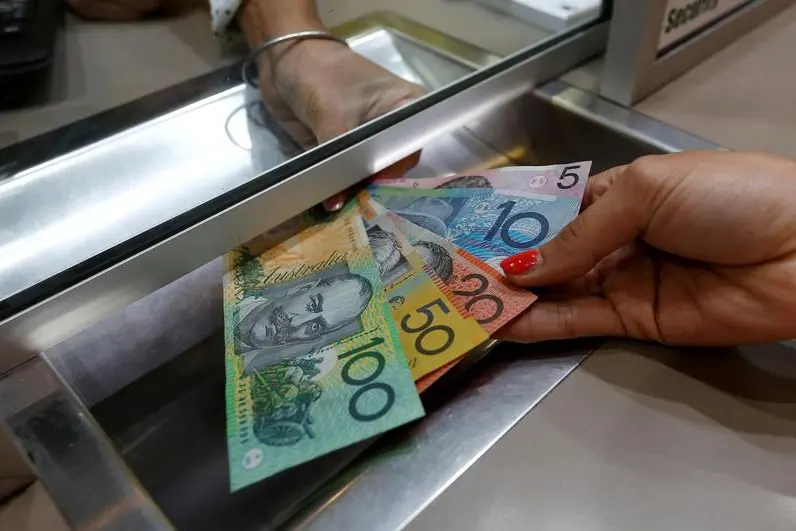PHOTO
The Australian and New Zealand dollars nursed losses on Friday after a hotter-than-expected U.S. inflation rekindled fears of more U.S. rate hikes, and weak data from China, the Antipodean economies biggest export market, kept sentiment fragile.
The Aussie held at $0.6325, after plunging 1.56% overnight to just a touch above its 11-month low of $0.6287 hit earlier this month. It is down almost 1% for the week, with major resistance at about 64 cents.
The kiwi was down at $0.5919, having slid 1.5% overnight. It is on track for a 1.2% weekly decline, with support at $0.5860 and resistance around 60 cents.
Overnight, U.S. consumer prices came in hotter than expected, hammering markets that had begun to believe that U.S. rates had peaked after recent dovish guidance from Federal Reserve officials. Treasury yields resumed their climbs and the dollar remained firm.
Futures are still leaning towards a pause from the Fed in November but they moved to price in a sizeable 40% probability of a rate hike in December.
Australian bonds took a kicking, with ten-year benchmark government bond yields surging 11 basis points to 4.486%. Futures now imply an even chance that the Reserve Bank of Australia could deliver one last hike early next year.
Analysts at Westpac said the sharp reversal in the Australian dollar could extend to $0.6285.
"Over the course of Q4, A$ is likely to remain constrained by what we regard as still-solid US$ foundations and persistent gloom over China’s growth prospects," said Imre Speizer, a strategist at Westpac. "We are likely to need a sharp improvement in China data to spark notable covering of large A$ short positions".
The two Antipodean currencies are often traded as proxies for the Chinese yuan due to their economies exposure to China.
China's consumer inflation flatlined in September while the decline in producer prices also showed persistent deflationary pressures on the economy. Both exports and imports continued to shrink, albeit at a slower pace. (Reporting by Stella Qiu; editing by Simon Cameron-Moore)





















